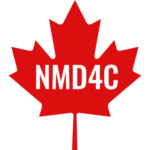Bernard Jasmin

Co-Applicant
Dean and Professor at faculty of Medicine UOttawa |
Vice-President, Research, at the Association of Faculties of Medicine of Canada (AFMC)
NMD4C Involvement: Pillar 1: Preclinical Science
Email BernardBiography
Dr. Jasmin obtained his PhD in 1988 from the Université de Montréal. Following postdoctoral training in Paris, France (1988-90), he worked as a Research Associate at the University of Miami School of Medicine for an additional two years. Throughout his training, Dr. Jasmin has focused his work on cellular and molecular neurobiology.
Prior to becoming Interim Dean in July 2017 and permanent Dean in October 2018, Dr. Jasmin assumed the role of Vice-Dean, Research, in the Faculty of Medicine (2009-2017). He was initially recruited to the University of Ottawa as an Assistant Professor in 1992 by the Department of Physiology. He quickly moved through the ranks and was promoted to Full Professor in 2000. In 1999, he co-founded the University of Ottawa Centre for Neuromuscular Disease and acted as one of its co-Directors until 2002. From 2002 to 2009, Dr. Jasmin was Chair of the Department of Cellular and Molecular Medicine (CMM). Early in 2017, Dr. Jasmin was also named Vice-President, Research, at the Association of Faculties of Medicine of Canada (AFMC).
In his leadership roles, Dr. Jasmin has consistently worked closely with all stakeholders from the University, Faculty, and affiliated Hospitals and Research Institutes, to either lead or assist in the development of a number of flagship programs and initiatives that have had a clear positive impact on the educational and research missions of the Faculty of Medicine. In particular, Dr. Jasmin has been instrumental in the marked increase in research intensity seen in the Faculty of Medicine, while playing key roles in the establishment of several broad-based strategic initiatives including the Brain and Mind Research Institute, the Centre for Infection, Immunity and Inflammation, and the design and implementation of a joint recruitment plan for Professors/Scientists with Clinical Departments and affiliated Research Institutes. Dr. Jasmin greatly facilitated also the accreditation for the following graduate programs: Biochemistry, Cellular and Molecular Medicine, Epidemiology, Microbiology and Immunology, and Neuroscience, with all programs receiving high rankings. In addition, Dr. Jasmin strongly supported the development and creation of the Division of Clinical and Functional Anatomy, the Department of Innovation in Medical Education (DIME), and the MD/PhD Program.
While assuming various leadership roles, Dr. Jasmin has maintained an internationally recognized research program that focuses on defining signaling pathways and regulatory events that control expression of synaptic genes and proteins in neurons and skeletal muscle cells. In his work, the emphasis is placed on studying fundamental questions that are relevant for our understanding of the physiopathology of various neuromuscular diseases and for developing novel therapeutics for these diseases. Over the course of his career, Dr. Jasmin has published more than 135 scientific articles and book chapters, mostly as senior investigator. The excellence of his work has not only been recognized by several awards, including CIHR New Investigator, CIHR Investigator, and CIHR/IMHA Quality of Life Award, but in addition, by invitations to present at prestigious meetings and institutions around the world. Most recently, he received an Honorary Doctorate from the Université Claude Bernard Lyon 1 in recognition of his research accomplishments as well as his commitment to international partnerships.
Recent Publications
Ravel-Chapuis, A, Atieh, SA, Fahmi, C, Jasmin, BJ. Disruptions of Cell Signaling Pathways in Myotonic Dystrophy Type 1 (DM1) Skeletal Muscle, their Pathogenic Impact and Potential for Combinatorial Therapeutics. J Biol Chem. 2026. 111219 PMID:41621483
Butcher, J, Gosse, JT, Gobin, J, Ravel-Chapuis, A, Jasmin, BJ, Stintzi, A et al.. Dystrophic Skeletal Muscle Phenotypes Can Be Horizontally Transferred via Fecal Microbiome Transplantations. FASEB J. 2025.39 (23)e71281 PMID:41313610
Warman-Chardon, J, Jasmin, BJ, Kothary, R, Parks, RJ. Report on the 6th Ottawa International Conference on Neuromuscular Disease & Biology - September 7-9, 2023, Ottawa, Canada. J Neuromuscul Dis. 2025.12 (1)22143602241304993 PMID:39973448
Ravel-Chapuis, A, Fahmi, C, Gobin, J, Jasmin, BJ. The AMPK allosteric activator MK-8722 improves the histology and spliceopathy in myotonic dystrophy type 1 (DM1) skeletal muscle. FASEB J. 2024.38 (23)e70199 PMID:39611312
Roussel, MP, Ravel-Chapuis, A, Gobin, J, Jasmin, BJ, Leduc-Gaudet, JP, Gagnon, C et al.. Changes in Physiopathological Markers in Myotonic Dystrophy Type 1 Skeletal Muscle: A 3-Year Follow-up Study. J Neuromuscul Dis. 2024.11 (5)981-995 PMID:39031377
Freeman, E, Langlois, S, Leyba, MF, Ammar, T, Léger, Z, McMillan, HJ et al.. Pannexin 1 dysregulation in Duchenne muscular dystrophy and its exacerbation of dystrophic features in mdx mice. Skelet Muscle. 2024.14 (1)8 PMID:38671506
Moloo, H, Gaudreau-Simard, M, Kendall, C, Best, G, Seguin, N, Jasmin, BJ et al.. Revitalising medical governance for a healthier world: the urgent case for a director of planetary health in every faculty of medicine. Lancet Planet Health. 2024.8 (3)e135-e137 PMID:38453376
Almasi, S, SarmastiEmami, S, Baird, S, Ning, Z, Figeys, D, Côté, J et al.. Staufen1 controls mitochondrial metabolism via HIF2α in embryonal rhabdomyosarcoma and promotes tumorigenesis. Cell Mol Life Sci. 2023.80 (11)328 PMID:37847286
Neault, N, Ravel-Chapuis, A, Baird, SD, Lunde, JA, Poirier, M, Staykov, E et al.. Vorinostat Improves Myotonic Dystrophy Type 1 Splicing Abnormalities in DM1 Muscle Cell Lines and Skeletal Muscle from a DM1 Mouse Model. Int J Mol Sci. 2023.24 (4) PMID:36835205
Osseni, A, Ravel-Chapuis, A, Belotti, E, Scionti, I, Gangloff, YG, Moncollin, V et al.. Pharmacological inhibition of HDAC6 improves muscle phenotypes in dystrophin-deficient mice by downregulating TGF-β via Smad3 acetylation. Nat Commun. 2022.13 (1)7108 PMID:36402791
See more on PubMed